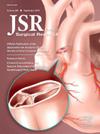Generative Artificial Intelligence in Academic Surgery: Ethical Implications and Transformative Potential
IF 1.8
3区 医学
Q2 SURGERY
引用次数: 0
Abstract
Artificial intelligence (AI) is rapidly being used in medicine due to its advanced capabilities in image and video recognition, clinical decision support, surgical education, and administrative task automation. Large language models such as OpenAI’s Generative Pretrained Transformer (GPT)-4 and Google’s Bard have particularly revolutionized text generation, offering substantial benefits for the academic surgeon, including aiding in manuscript and grant writing. However, integrating AI into academic surgery necessitates addressing ethical concerns such as bias, transparency, and intellectual property. This paper provides guidelines and recommendations based on current literature around the opportunities and ethical challenges of AI in academic surgery. We discuss the underlying mechanisms of large language models, their potential biases, and the importance of responsible usage. Furthermore, we explore the ethical implications of AI in clinical documentation, highlighting improved efficiency and necessary privacy concerns. This review also addresses the critical issue of intellectual property dilemmas posed by AI-generated innovations in university settings. Finally, we propose guidelines for the responsible adoption of AI in academic and clinical environments, stressing the need for transparency, ethical training, and robust governance frameworks to ensure AI enhances, rather than undermines, academic integrity and patient care.
求助全文
约1分钟内获得全文
求助全文
来源期刊
CiteScore
3.90
自引率
4.50%
发文量
627
审稿时长
138 days
期刊介绍:
The Journal of Surgical Research: Clinical and Laboratory Investigation publishes original articles concerned with clinical and laboratory investigations relevant to surgical practice and teaching. The journal emphasizes reports of clinical investigations or fundamental research bearing directly on surgical management that will be of general interest to a broad range of surgeons and surgical researchers. The articles presented need not have been the products of surgeons or of surgical laboratories.
The Journal of Surgical Research also features review articles and special articles relating to educational, research, or social issues of interest to the academic surgical community.

 求助内容:
求助内容: 应助结果提醒方式:
应助结果提醒方式:


